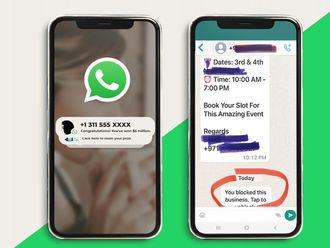Dubai
Clearly, there is room for more radio stations on the UAE’s air waves. Two more players have entered in what is already an overcrowded space and all of them hoping to offer something that will have listeners tuning in. And then keep doing the same.
“But the radio broadcast industry is one where there’s overcrowding all over the world — it’s not a phenomenon confined to a few markets,” said Ajit Menon, Chief Operating Officer at Flowers International, which has just launched Flowers FM94.7, an Indian language station. “But Dubai/UAE is a marketplace where radio will continue to hold sway because of the captive audience it offers.
“The trick for station operators is to come up with something new.”
In the last three years, new Indian language stations — Hindi, Malayalam and Tamil — and their older counterparts have been vying hard for advertising dirhams. With more residents in the UAE spending longer hours commuting, they offered an instantly accessible medium for brands and advertisers to connect.
Until last year, that was a message advertisers were willing to hear loud and clear. But last year saw a decline in ad spend targeting at radio stations and the trend has continued this year.
According to Menon, “The slowing adverting scene has impacted on all sectors and not just radio, The situation right now is that the declines in spending have not been dramatic.
“The best part about operating a radio station is that costs are largely controllable, unlike TV where new content has to be constantly created.”
Flowers 94.7, which is aiming for break even in 18 months of operations, acquired the studio operated by Dolphin Recording, which was earlier managing the frequency, on long-term lease.
The station is part of Flowers International, an Indian media group in India which has interests in TV as well. “Where we want to standout vis-a-vis the competition is by creating cross-selling and cross-programming opportunities to our audiences here,” said Menon. “Sure, our competition (Manorama and Mathrubhumi with their own radio stations here) have similar opportunities to do the same, but we will be the first to do so aggressively.
“So, if an audience here is exposed to what our TV channel stands for, it figures that a good number of them will follow us on radio. And that’s a sizeable audience to begin with.
“Our TV channel, which is entertainment focused, has only been live for 24 months but managed to carve out a dedicated audience both here and in India. This is what we will build on with the Flowers radio venture.” (There are plans to launch a second station in the UAE, most likely one in Tamil.) The other station to launch recently is Radio Gilli on the 106.5FM frequency (the frequency is owned by of Umm Al Quwain Broadcast Network). For Cine Advertising Services, which launched the station, it follows the roll-out of Cine TV on E-Vision in November last.
According to Glenn Netto, Buying Head at the media buying agency BPG Maxus, “Traditionally, stand-alone radio stations have had to go through a longer gestation period in the UAE. In contrast, network operators — those broadcasters with more than one station — have managed to do relatively well.
“But these days, the drop in advertising has been pretty severe — the drop across the board for radio stations would be in the range of 15 per cent. It will be something that new stations — and future ones — will have to watch out for.” (A popular station with a committed listener base now command about Dh450 for a 30 second spot.)












